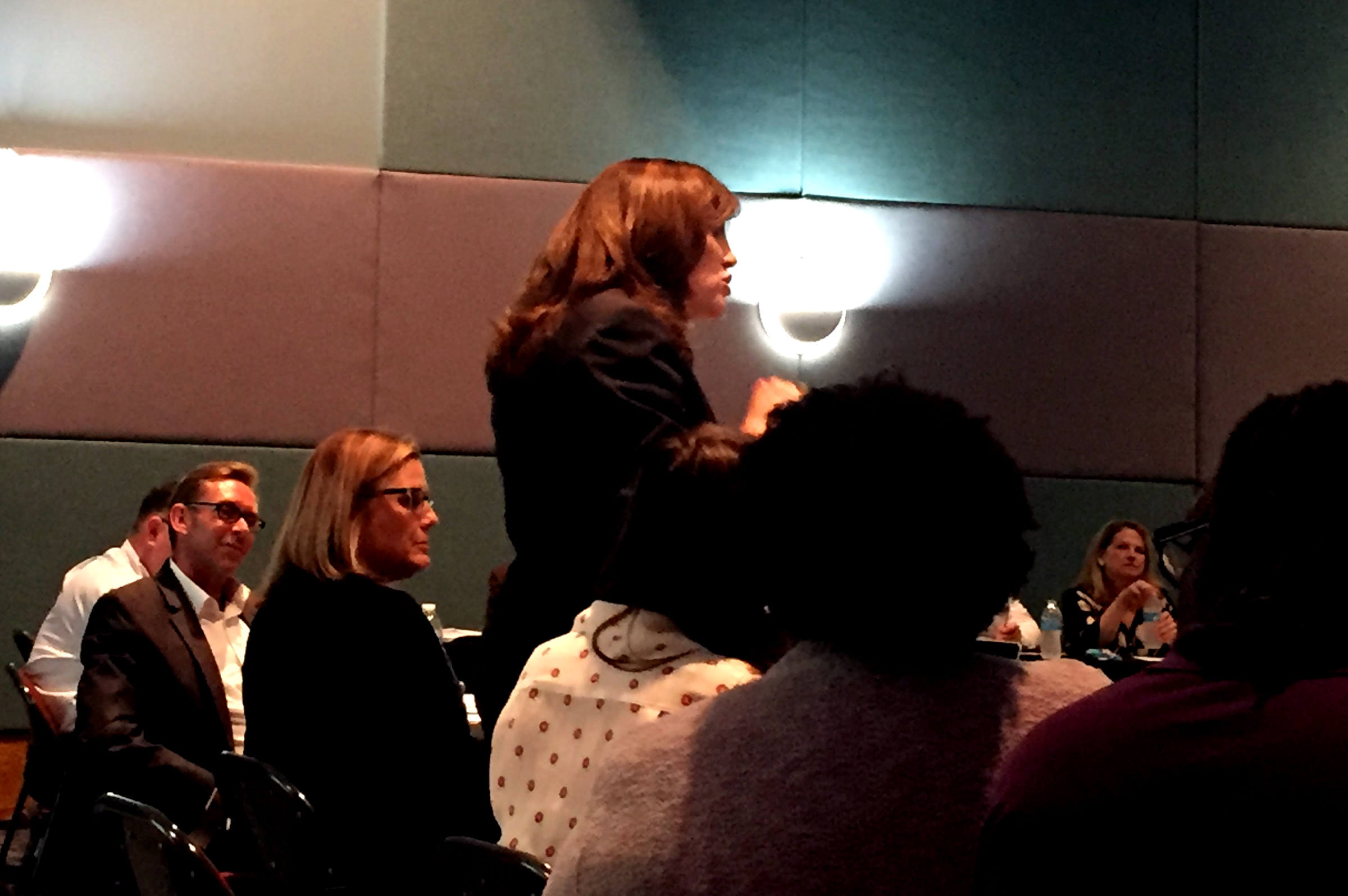
Simply telling teenagers that certain sexual activities are illegal often is insufficient in getting the message across to some Louisiana youths. However, explaining the punishment that comes with breaking the laws is the more effective approach, says former Jefferson Parish Juvenile Court prosecutor Stacie LeBlanc.
For instance, LeBlanc said, a 17-year-old who has sex with a child under age 13 would be committing a first-degree rape under Louisiana law, which is punishable by up to life in prison. For a teen under age 17 having sex with the same child, the punishment could be “juvenile life,” or incarceration until he or she reaches age 21 or potentially to age 31 under some circumstances.
“Teenagers don’t know this,” LeBlanc said. “They’re pretty shocked by this.”
LeBlanc, executive director of the New Orleans Child Advocacy Center and the Audrey Hepburn CARE Center at Children’s Hospital, tries to educate area youths through a 1 ½-hour long program she created, “Teens, Sex and the Law.”
She also created a pamphlet that she has distributed in recent years to young audiences, including 10th graders at New Orleans’ all-girl Catholic schools, she told members of the Jefferson Parish Children and Youth Board on Tuesday (Sept. 27).
Click here for a PDF of the “Teens, Sex and the Law” pamphlet.
The Jefferson Parish Coroner’s Office, with assistance of the Jefferson Parish District Attorney’s Office, uses LeBlanc’s program and pamphlets as part of its mental health program. Coroner Gerry Cvitanovich implemented the program since taking office in 2012, and Jefferson Parish is the only jurisdiction in the state to present it as part of its effort to address suicide.
During the past two years, 11,927 Jefferson Parish public school students have been taught the “Teen Sex and the Law” program, Mary Ann Dankert, director of community outreach at the Coroner’s Office, said Tuesday.
“That has been a huge blessing for our community, because their (teenagers’) beliefs on sexual activities are completely different” than those held by adults, Dankert said. “It’s been a benefit.”
Louisiana law requires that sex education in schools must focus on abstinence, LeBlanc said. She stressed her program isn’t about sex education. It’s about laws related to sex involving juveniles, including the punishment youths and adults can receive when it comes to sexual activities with juveniles.
At the Audrey Hepburn CARE Center at Children’s Hospital, 26 percent of the youths who are evaluated by the center’s staff were there because of some type of sexual activity with another juvenile, LeBlanc said.
Often, she said, student leaders more effectively deliver the message of law and teen sex to their younger counterparts. Teens talk to other teens about sex, she said. LeBlanc said she has worked with schools where teens present the program to classmates with a lawyer’s guidance.
“So, it really works best that way,” she said.
Seeking advice on the Internet isn’t effective, because the information isn’t always available. Plus, Louisiana’s laws are unique among the states, LeBlanc said.
In her program and her pamphlet, LeBlanc addresses the laws on sexting, or sharing nude images through cell phones. For instance, a 17-year-old boy who takes nude photographs of his 15-year-old girlfriend using his cell phone would be producing child pornography, which is punishable by up to 10 years in prison.
In Jefferson Parish, authorities are seeing an increase in sexting-related crimes. So the District Attorney’s Office has incorporated elements of LeBlanc’s work into its pre-trial juvenile diversion program, said Blake Bascle, deputy director of the DA’s diversion program.
Diversion counselors sit in “talking circles” with teenagers involved in sexting and their parents and discuss the law and punishment as they apply to youths sharing nude images of themselves, Bascle told the Children and Youth Planning Board.
“It seems to work really well,” Bascle said. He recalls one teen disclosing how he told another teen to stop sharing the illicit photos, heeding the advice given in the diversion program. “We know somebody heard it, at least one.”
Taking nude photographs or videos of a person who is under age 17 is illegal. By law, that’s producing child pornography, and the punishment for it is up to 10 years in prison with no chance of probation or parole. Sharing those images is equally illegal.
The age of consent in Louisiana is 17. Louisiana has “a whole menu of laws,” that pertain to juveniles and sex, LeBlanc said. For instance, if two teens of the same age get drunk and have sex, both of them could be charged with simple rape if the other party was too drunk to consent.
Or, if a 19-year-old boy has sex with his willing 15-year-old girlfriend, he can be charged with carnal knowledge of a juvenile – the specific law in Louisiana for the general legal term “statutory rape.” Carnal knowledge in Louisiana is punishable by up to 10 years in prison.
“’No’ means ‘no’ at any age,” LeBlanc said. “But ‘yes’ even at a certain age can be illegal.”

